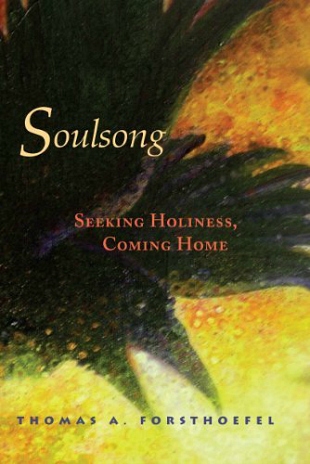Thomas A. Forsthoefel is associate professor of religious studies at Mereyhurst College in Erie, Pennsylvania. In this engaging and illuminating study of holiness as an outpouring of humanness, he enables us to see the poignant energy of the many saints in our lives, those who are living and those who are dead. In the first chapter, he even salutes the value of a smile, pointing to the picture on the cover of An Open Heart where the Dalai Lama is smiling with joy. He recalls a friend saying that instead of "His Holiness the Dalai Lama" it would be just as appropriate to call him "His Happiness the Dalai Lama." Many people discover in his smile a glimpse of the Divine, a peace that passes all understanding, and an elation in the present moment.
Smiles are just one dimension of holiness covered in this wide-ranging paperback that alludes to spiritual teachers and bodhisattvas from all religious traditions. In "The Holiness of Fire," the author examines the radical call to justice and compassion in the lives of John Dear and Thai activist Sulak Sivaraksa. In "The Holiness of Energy," he looks at two individuals with a tireless commitment to service — the late Salesian priest Francis Schlooz and the late Mother Teresa. In "The Holiness of Calm," the accent is upon the wisdom that has shaped the lives of Hindu and Buddhist holy ones such as Ramana Maharshi, His Holiness the Dalai Lama, and Thich Nhat Hanh. "The Holiness of Death" covers the spiritual art of letting go in the face of our own mortality. "The Holiness of the Everyday" is a mighty challenge "to love well and live wisely" in the ordinary precincts of our communities. The final chapter covers "The Holiness of Brokenness" where we work with the realities of human weakness and imperfection to serve others.
Throughout the book Forsthoefel uses poems from Rumi, David Whyte, Hafiz, and others to illustrate the deepest spiritual truths about our world. Along the way, he scatters little jewels such as the following:
"It is not so much that practice makes perfect but that in the practice there is perfection. The practice itself — little acts of kindness, mindful breathing, incremental steps in a life of love — is the goal. In this case, there is no looking to outcomes, for the outcome is already achieved in the practice."
Whether writing about Islamic surrender to God, the idea of sacrifice, the importance of communion with others, or the laser-like capacity of saints to devote all of their energies to what they are doing; Forsthoefel makes his points vividly. In the chapter on everyday spirituality, the author concludes:
"The invitation I would leave with you here is to consider the satsang of your life. Who are the persons in your life who have shown exquisite compassion, calm, patience, simplicity, kindness, generosity? These persons are a profound gift, for they not only show something beautiful about being human, they show something beautiful about you, some key stream of your being, too, the evidence of which is the resonance you feel in the presence of your friend. To honor them is to also honoring you. To cultivate the qualities that resonate from our friends cultivates our humanity and fulfills our vocation, for the only vocation we really have is the vocation of being human."
